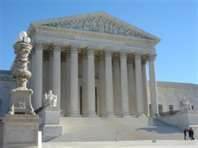20th Annual Howard B. Eisenberg Do-Gooders’ Auction–An Interview with PILS Fellow Maria Lopez
The 20th Annual Howard B. Eisenberg Do-Gooders’ Auction on behalf of the Law School’s Public Interest Law Society (PILS) will be held on February 15, 2013 at the Law School. Proceeds from the event go to support PILS Fellowships to enable Marquette law students to do public interest work in the summer. Maria Lopez, a current law student, shares her experience here as a PILS Fellow.
Where did you work as a PILS Fellow?
I interned with the Illinois Migrant Legal Assistance Project (IMLAP) at their office in Rantoul, Illinois.
What kind of work did you do there?
IMLAP’s mission is to advocate on behalf migrant agricultural workers and educate them on their rights as workers. My duties included outreach to workers at their housing or work sites, collaboration with local agencies such as Migrant Head Start and the Department of Human Services, and meeting with employers on behalf of our clients.
How was the experience meaningful to you?
My experience with IMLAP was meaningful because it provided me with an opportunity to work closely with great people–not only my clients, but also my supervisors and coworkers, as well as other agency representatives, all of whom were very supportive.


